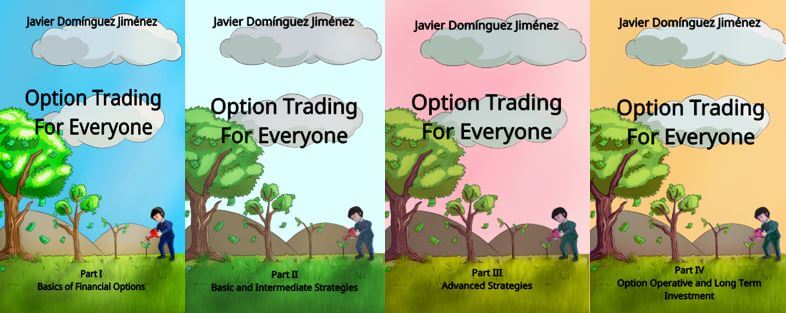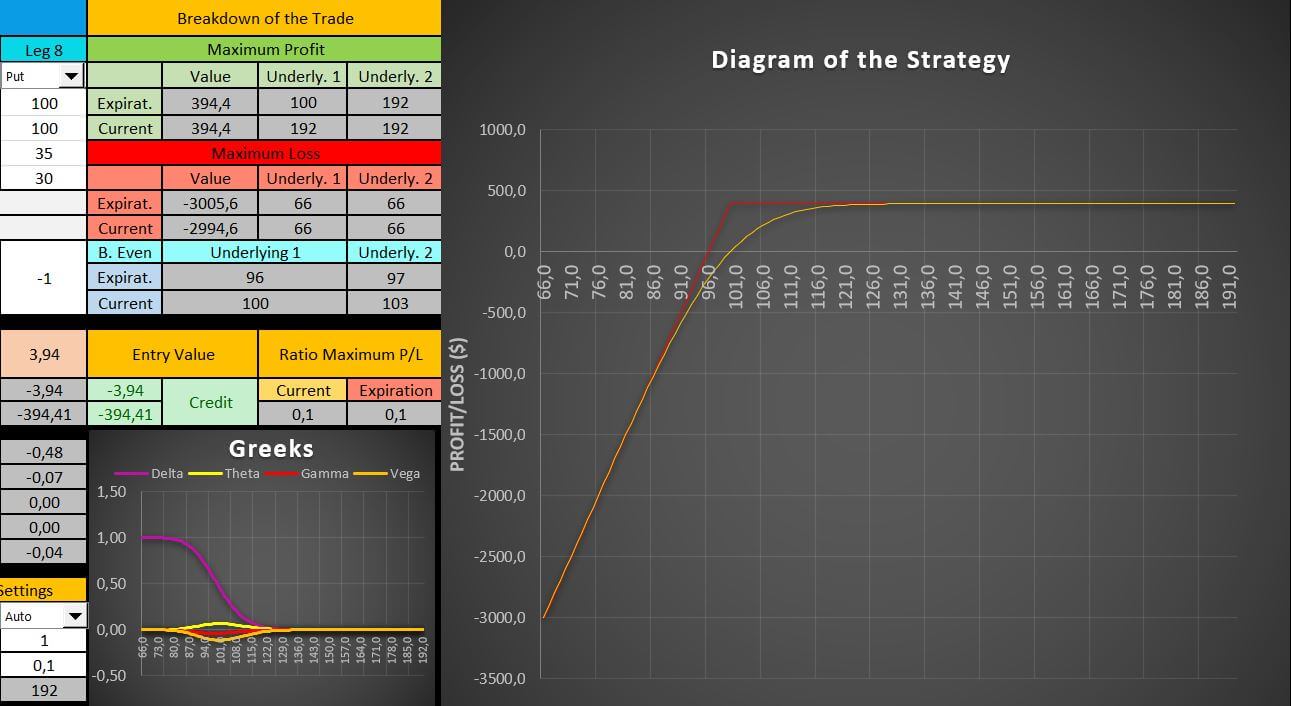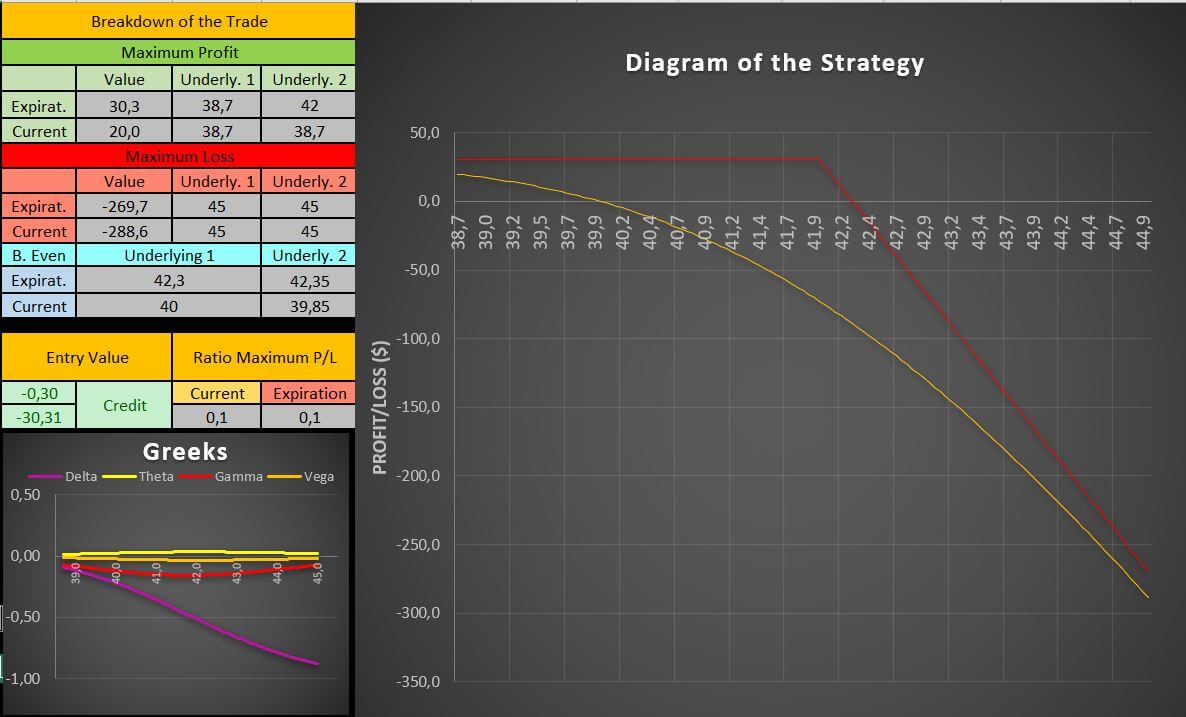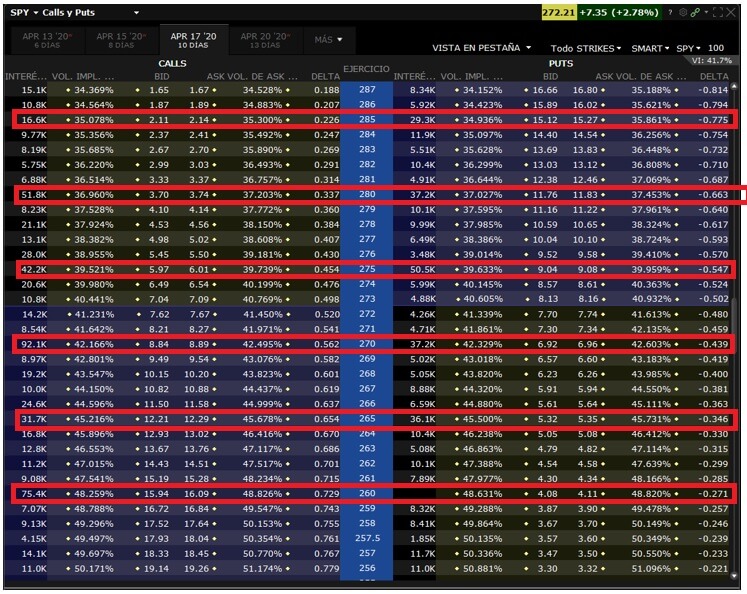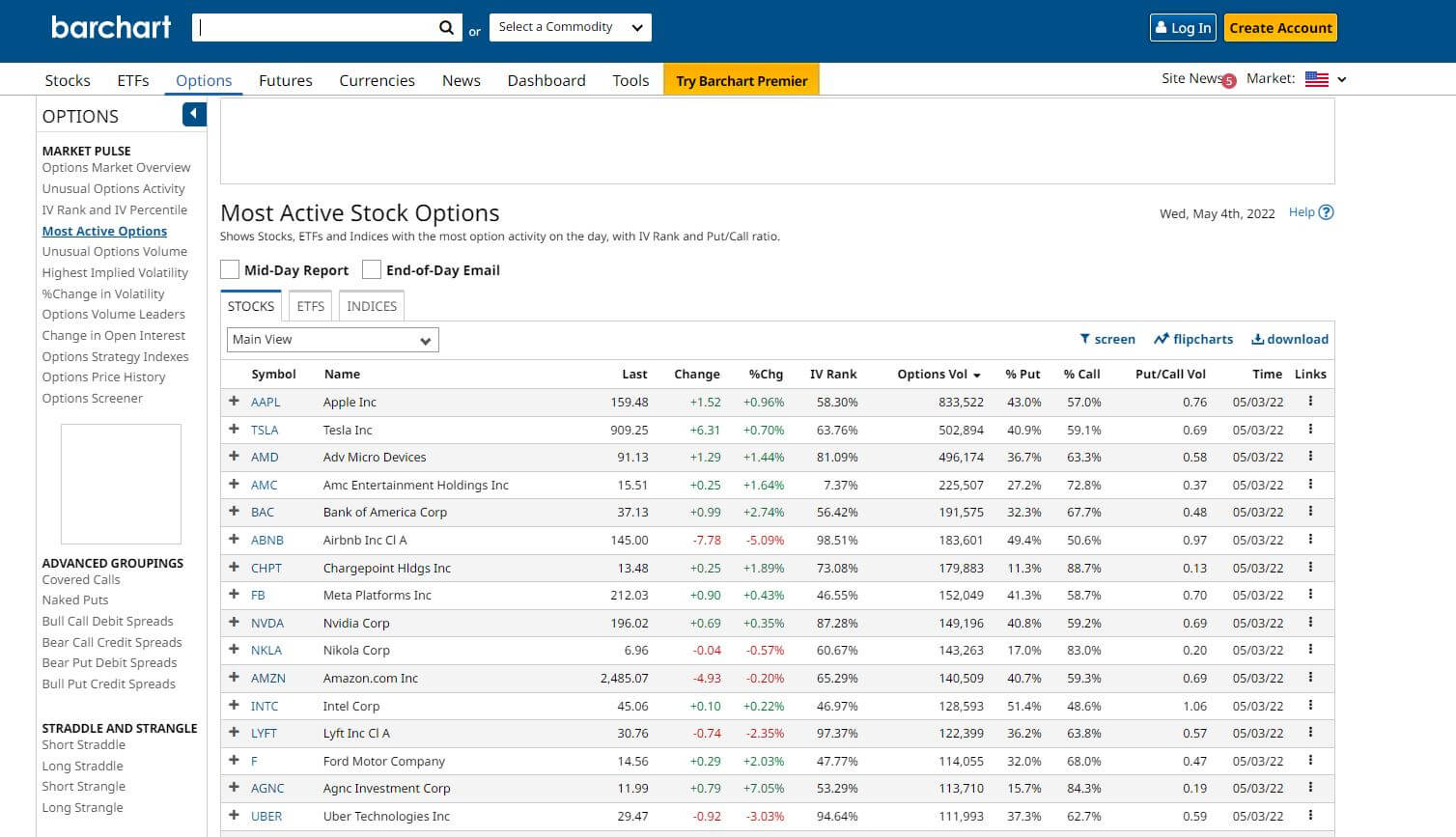What’s riskier: selling a put or buying a call option? – Are Puts Riskier than Calls
Are puts riskier than calls? And what’s riskier: selling a put or buying a call option? You may have heard of different strategies such as the selling put or the buying call that we can use to profit in options trading when the underlying price is going to be increasing in the long term.
However, even when both strategies profit when the underlying goes up, they both have different P&L graphs we need to take into account before opening a trade.
The main question is to ask ourselves what’s riskier: selling a put or buying a call option? Let us find out…
Table of Contents
Advantages and disadvantages of buying a call option
Assuming that we want to go long in a stock, we could buy a call option to profit from this movement. As you know, there are many different ways to configure a call option, as we need to choose the strike price and the expiration date of the contract.
We are going to assume that we have a stock whose underlying price is $100 and we buy a call option whose strike price is $100 too with an expiration date of 30 days.
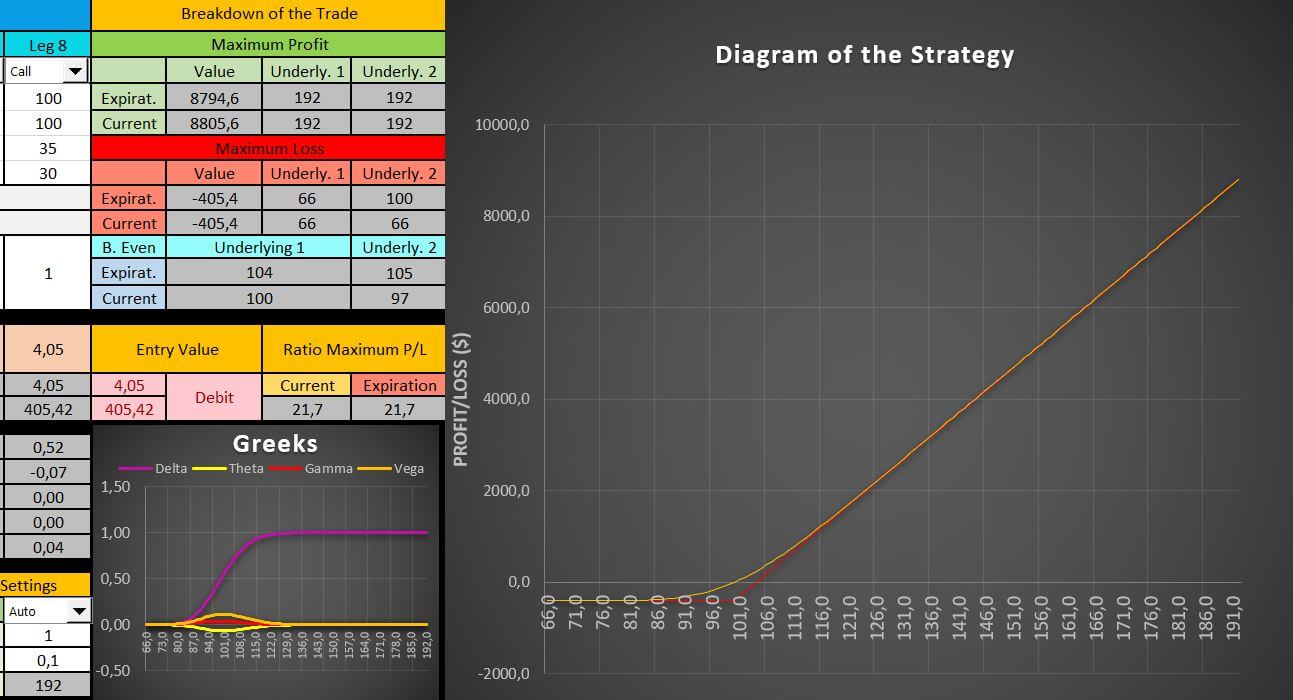
In this case, we will need to pay $405 as a premium and that defines our maximum risk for the trade. It does not matter what happens in the stock, we will only lose $405 in this trade, but what we can profit from is unlimited, as you can see in the previous graph.
Do you need a Calculator that helps you create and analyze any option strategy in record time? |
This may seem like the holy grail of trading, right? A couple of option trades like this and we will be rich. Well, not so fast…
The main disadvantage of this strategy is this: our call option will be losing value every single day due to the nature of the strategy. So, if the underlying does not move, or even if it reaches the value of $104 at the expiration date, we will have not made any money.
If you want to see the break-even value for our current strategy, check the Break-Even section in our Advanced Options Trading Calculator in the previous image
To correctly answer what’s riskier: selling a put or buying a call, we now are going to compare it to check the metrics of the selling put.
Advantages and disadvantages of selling a put option
The other way to profit when the underlying moves to the upside are by selling a put options. Again, we are going to assume that the underlying price of the stock is $100 and that we sell a put option whose strike price is $100.
Let us take a look again at the Advanced Option Trading Calculator to check these numbers.
In this case, whenever we open the trade, we will be receiving $394 as a premium and that would be all our maximum profit for the trade.
It does not matter how much the underlying stock goes up, our only profit will be the premium we received when opening the trade. However, the maximum loss is undetermined, because if the stock goes down, we will be losing quite a lot of money, just like we can appreciate in the previous image.
If you are new to options, you are probably thinking that this is too much risk to expose for just $394 in a single trade. However, there is a catch.
If the market does not move, our option will be making some profits because of time decay, and apart from that, our break-even point is at $96 for the underlying price. In other words, for our strategy to lose money, the underlying price must be under $96 at the expiration, otherwise, we will make some money.
The great advantage of selling put options, that we will profit even when the market moves against us.
So, what’s riskier: selling a put or buying a call option?
The short answer is that selling a put is definitely much more riskier than buying a call option.
The long answer is this: even when selling a put is riskier, it is much more profitable in the long term because of the probabilities and the effects on time decay. Buying a call option might seem a very good idea, and it can also be profitable, but only if we stick to those options whose deltas are quite high.
If you want to learn more about this, we highly recommend you to take a look at this article, in which we explained why selling options is better than buying them in the long term.
Remember to use some technical analysis tools in order to determine the direction of the market. We highly recommend you to use the Relative Strength Index indicator to learn if the trend is going to continue or if it is going to change.
